






ExistentialResponsesto TurbulentTimes








ExistentialResponsesto TurbulentTimes
Click the links below to navigate the conference programme
Socrates Medal
2025 - SOCRATES MEDAL
Honouring Dr Paul T. P. Wong
Honouring Irvin D. Yalom

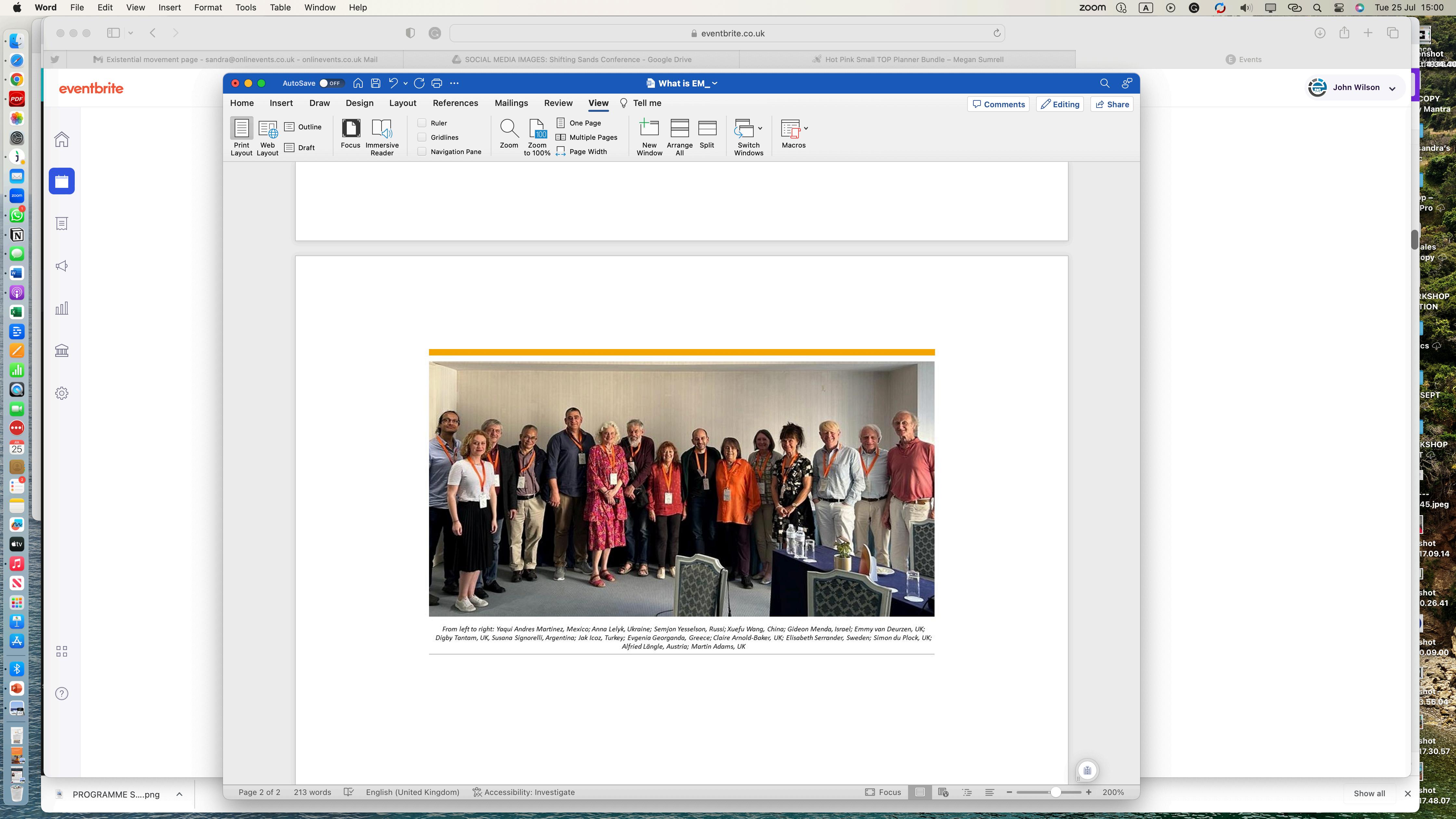
The Existential Movement exists to reduce interpersonal conflict and psychological suffering and to enhance well-being in the community. It is a non-religious, nonpolitical movement, using existential ideas derived from existential philosophy, psychotherapy, and psychology to achieve these aims. Its motto is to ‘bring wisdom to the world’.
The Existential Movement is composed of international members who wish to pursue the aims as the Existential Movement of enhancing emotional and spiritual health and well-being within the communities of each nation.
The movement is administered by a steering committee that directs and coordinates the Movement’s international activities. This is located at the Existential Academy, in London. The Existential Academy is a not-for-profit community interest company, whose motto is to bring philosophy to the community.
The movement is supported and given advice by an international advisory board, of 24 outstanding professionals in the field of existential psychology and psychotherapy. The board meets three times per year and had its first meeting on 6th May 2023, in Athens, at the third World Congress for Existential Therapy.
The first President of the Existential Movement is its founder, Professor Emmy van Deurzen, who is internationally known as an expert in this field. She will be supported and guided by the steering committee and the International Advisory Board.
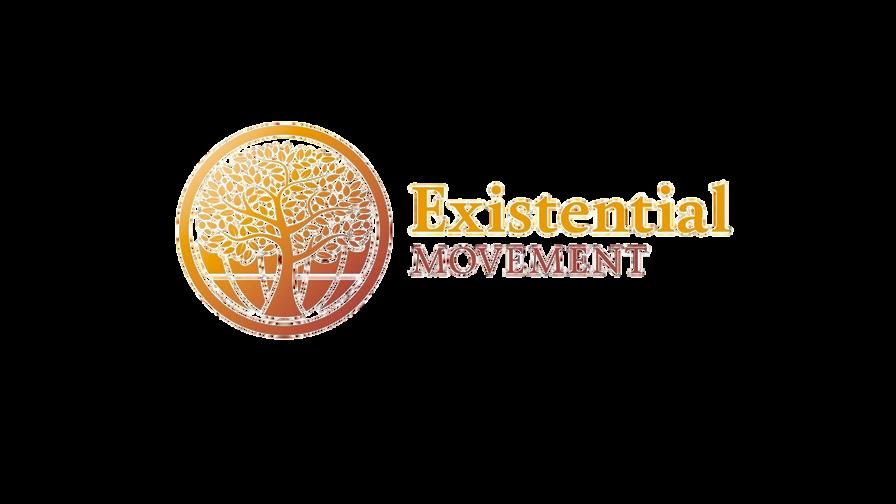

This movie has been generously sponsored by the Existential Academy
"Though human existence is often marred by chaos, confusion and uncertainty, there are many ways in which human beings can work together to come to greater clarity and understanding
This requires collaboration and commitment from people of good will from around the planet, sharing their expertise in opening spaces where meaning can come into evidence
The existential movement brings together philosophers, psychologists, therapists, and creative people who want to share knowledge, understanding and wisdom about how human beings can live wiser lives in a world that is often in turmoil.
This film will provide a first sketch of this global vision, which can enable human beings to evolve and find more creative and thoughtful ways of being together on this beautiful blue planet entrusted to us.
The movie will be shown on Friday during the conference welcome


Join us for the Award of the

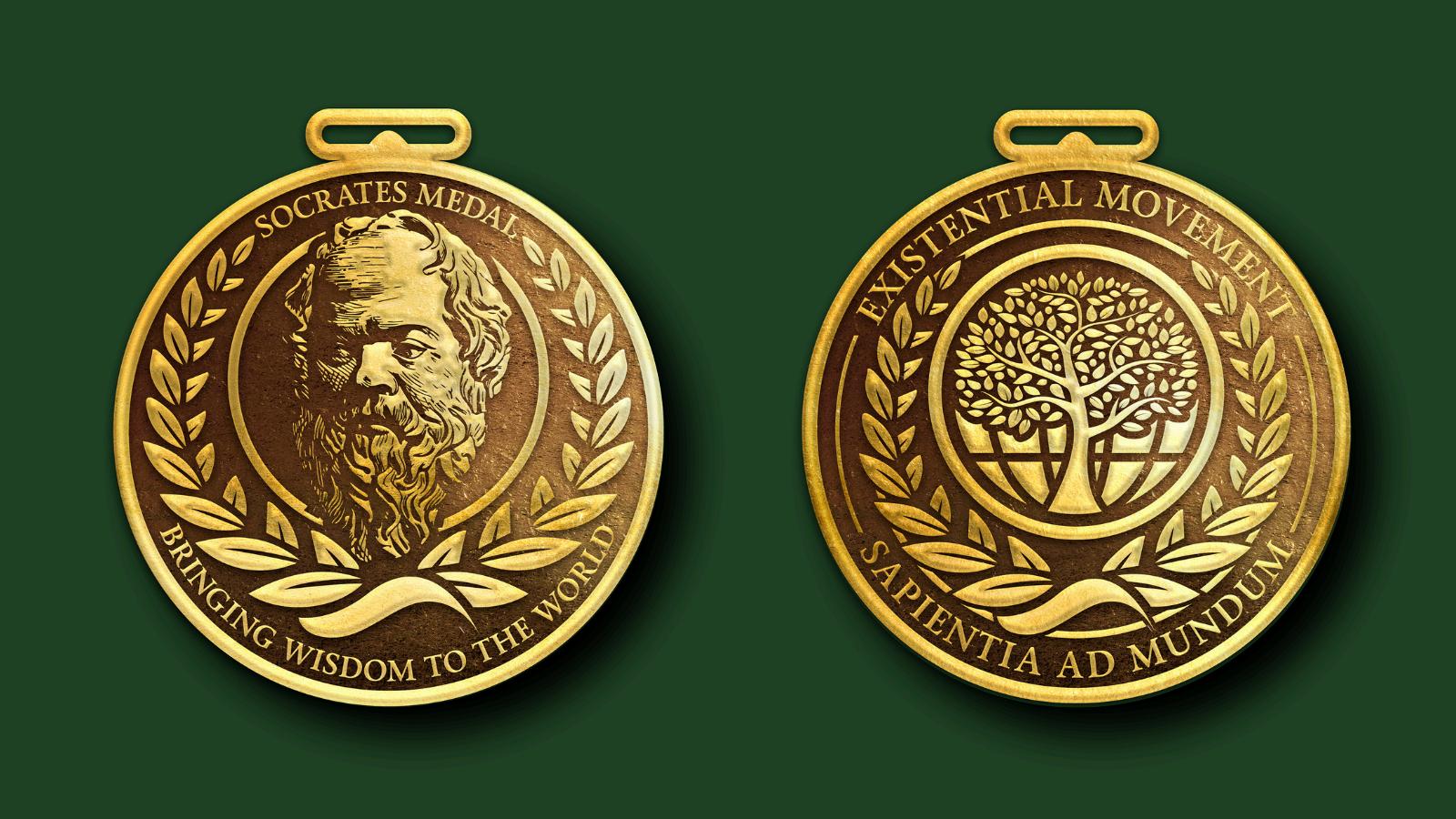
At the 2025 conference the medal will be bestowed on:

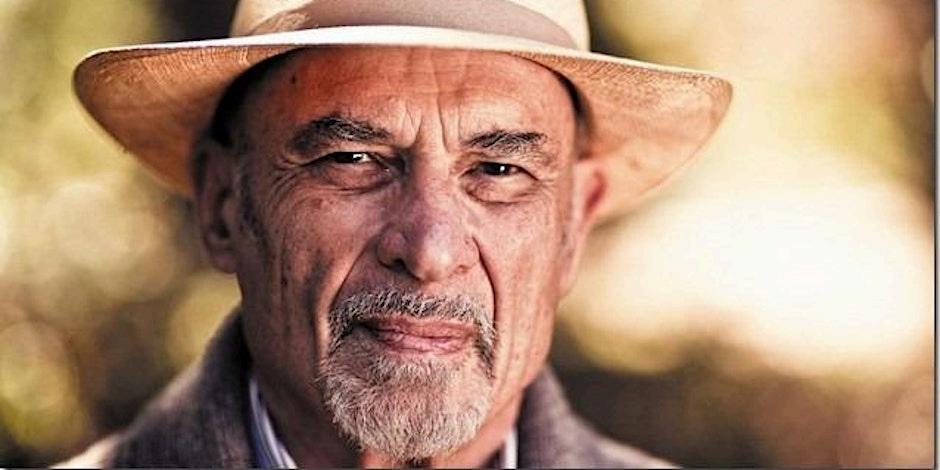

Irvin D. Yalom, who will receive the medal in person at the ceremony, accompanied by his son and co-author Benjamin Yalom Dr Yalom has been awarded the Socrates Medal for his lifelong inspirational therapeutic work and his prolific writing on existential issues, which have had a major impact on the international interest in existential thought.
Paul T.P. Wong (posthumously, as he has passed away since the award) and will be received by his widow Lilian Wong on his behalf. Dr. Wong is awarded the Socrates Medal for his indefatigable contributions to meaning therapy and positive existential therapy.
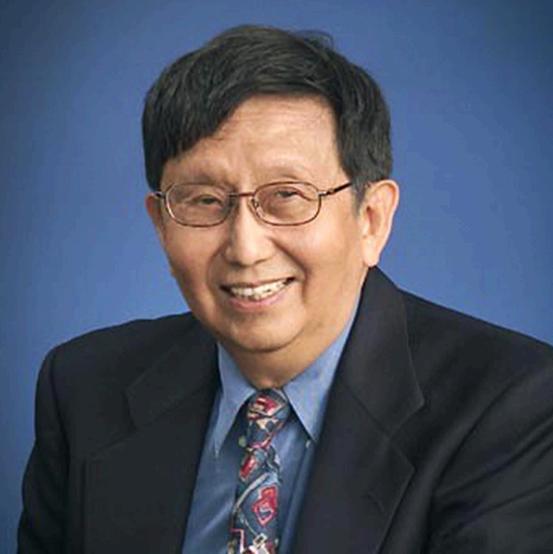

The Socrates Medal is an annual honorary award which the Existential Movement bestows upon exceptional individuals, in recognition of a lifelong and dedicated commitment to bringing wisdom to the world.
‘Sapientia ad mundum’ is indeed the Existential Movement’s motto, meaning to ‘bring wisdom to the world’.
The Socrates medal is conferred to a living person at the annual online conference and recipients will also be honoured on the EM’s website.





This special session will honour the remarkable legacy of Dr Paul T. P. Wong, recipient of the 2025 Socrates Medal Award
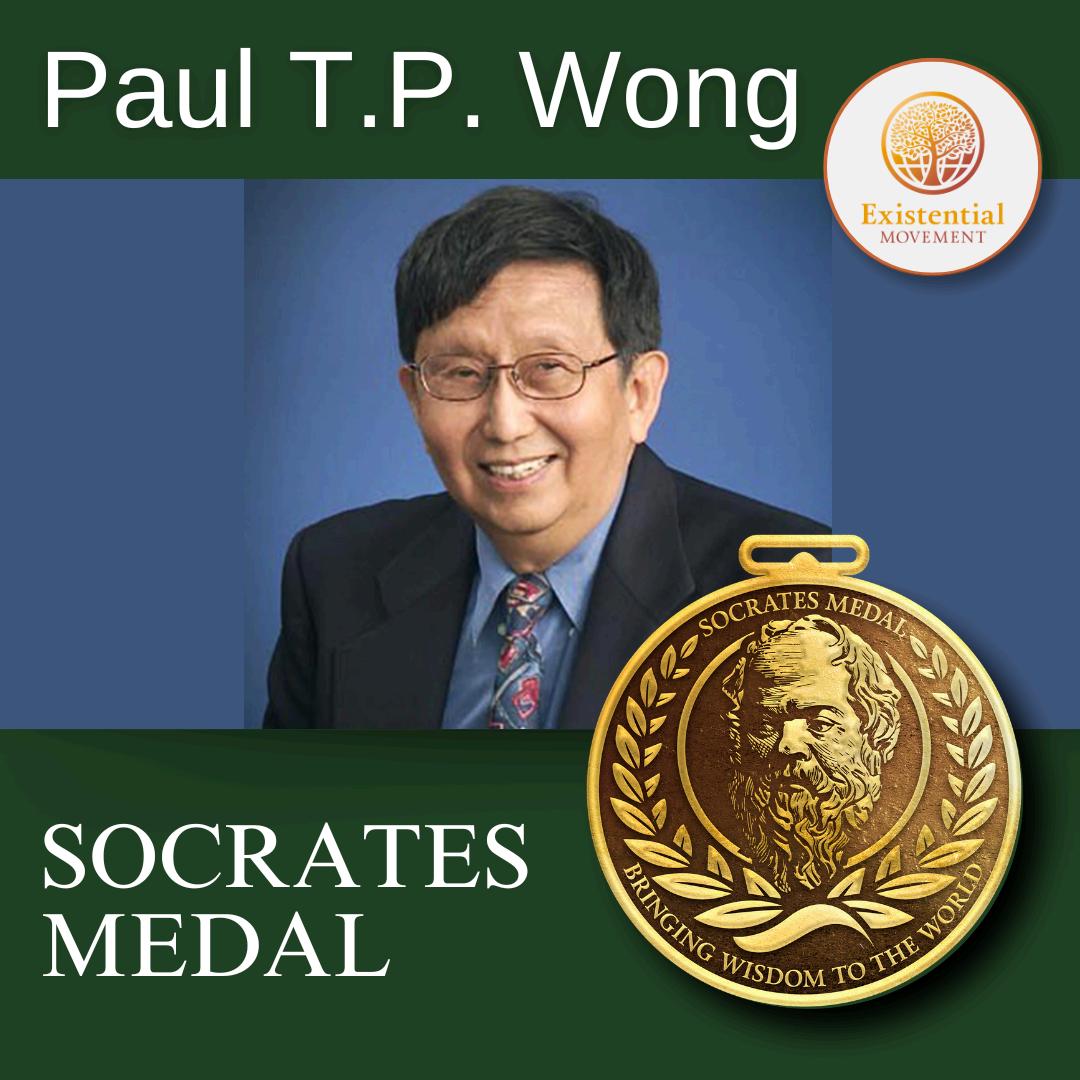

Renowned for his pioneering contributions to existential positive psychology and meaning-centred approaches to therapy, Dr Wong’s work has profoundly influenced countless practitioners and scholars worldwide.
Facilitated by Dmitry Leontiev, the session will feature a posthumous presentation of the Socrates Medal to Dr Wong’s wife, Lillian Wong. Joining her will be their son Austin Wong, who will share selected readings from Dr Wong’s influential writings, reflecting the depth and impact of his ideas. Together with Lillian and Dmitry, he will also share personal memories, offering a heartfelt glimpse into Dr Wong’s life, work, and enduring contributions to the field.
This will be a unique opportunity for conference participants to celebrate Dr Wong’s extraordinary life and legacy. Attendees will be invited to share their own reflections, stories, and tributes, creating a collective remembrance of a visionary who inspired a movement towards meaning, purpose, and authenticity in existential practice.
Join us for this poignant and celebratory gathering as we remember Dr Paul T. P. Wong and the transformative mark he has left on the existential movement and beyond.
Dr. Lilian C. J. Wong, B.Sc., MA., Ph.D. (University of British Columbia), Registered Psychotherapist, was Associate Professor and School Counselling Coordinator of the Graduate Program in Counselling Psychology at Trinity Western University, and Associate Professor of Psychology at Tyndale University. She served as PsychoEducational Consultant and School Psychologist for several school boards in Ontario and British Columbia. Dr. Wong is internationally recognized for her research on multicultural competencies in clinical supervision.




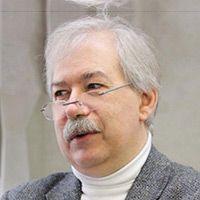
Dmitry Leontiev Ph.D., Dr. Sc., Tenured Professor of Psychology and Head of International laboratory of positive psychology of motivation and personality at Higher School of Economics, Moscow, Russia He strives to integrate existentialist approaches to human person with culturalhistorical activity theory approach and synergetic views on human self-regulation and self-organization in the research domain of positive psychology. Author of over 600 publications in Russian, including books “Psychology of Personal Meaning”, “Personality Potential: structure and assessment”, “Psychology of Choice”, “Hardiness and its Assessment” and others, and over 80 in English. Both his Ph.D. and habilitation works were focused on the problem of personal meaning. Dmitry is a recipient of the Promotional Award of Viktor Frankl Foundation of the city of Vienna (2004), honorary lifetime member of Society for Logotherapy and Existential Analysis by Viktor Frankl Institute (Vienna), national representative of Russia in European Network of Positive Psychology

Reflections on a Lifetime of Wisdom and the Making of Hour of the Heart


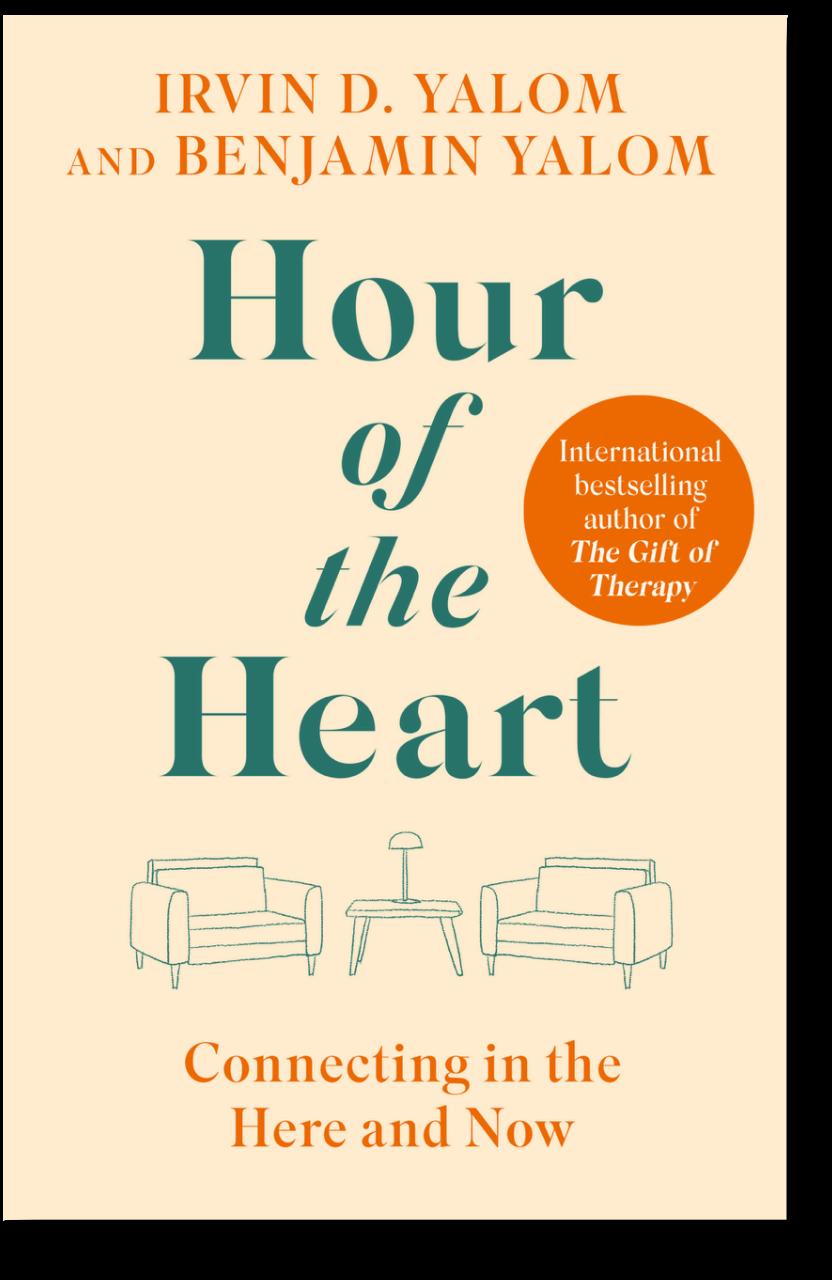
Join us for a profound and celebratory session featuring Irvin D. Yalom, the eminent psychotherapist and writer, and his son Ben Yalom, co-author of Hour of the Heart: Connecting in the Here and Now. In this special event, Irvin and Ben will engage in a rich dialogue with Emmy van Deurzen, Kirk Schneider, and John Wilson to explore the creation of their collaborative work and reflect on Irvin's extraordinary career.
The session will include introductions and reflections on the book’s themes, followed by selected readings by Ben Yalom. Irvin, Ben, and the panel will share their insights, engage in dialogue, and respond to reflections and questions from conference participants. The session culminates in the awarding of the Socrates Medal to Irvin Yalom, celebrating his lifetime contribution to existential psychotherapy and his profound impact on the field.
This unique event is a rare opportunity to witness the intersection of creativity, collaboration, and a life devoted to deep exploration of the human experience. Whether you're a therapist, writer, or admirer of Irvin Yalom’s work, this session promises to inspire and enrich.
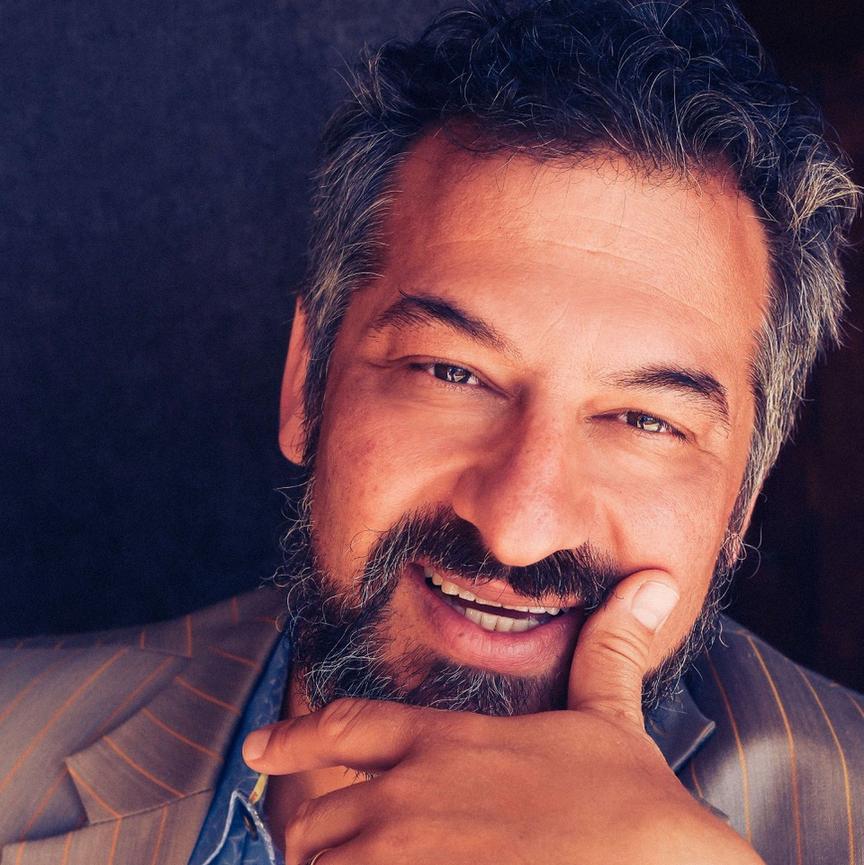

Benjamin Yalom is a psychotherapist, creative coach, theater-maker, and writer His therapy and coaching focus on understanding and aligning one’s values with one’s living, and unlocking creative approaches to work and life. He is a longtime writing collaborator with his father, Irvin D. Yalom. Prior to his current doctoral studies in Marriage and Family Therapy, Ben was the visionary force behind foolsFURY theater, which helped transform San Francisco’s performing arts scene in the early 2000s He is also an award-winning fiction writer, and holds an MFA from the Iowa Writers’ Workshop. He lives with his wife, Dr. Anisa Yalom, and their three children in San Diego. www.yalomtherapy.com


Kirk J. Schneider, Ph.D. (USA) is a leading spokesperson for existential-humanistic and existential-integrative psychology, an adjunct faculty member at Saybrook University and Teachers College, Columbia University, and a cofounder and current president of the award-winning Existential-Humanistic Institute. Dr. Schneider is the author/coauthor of 15 books, including his latest LifeEnhancing Anxiety: Key to a Sane World.
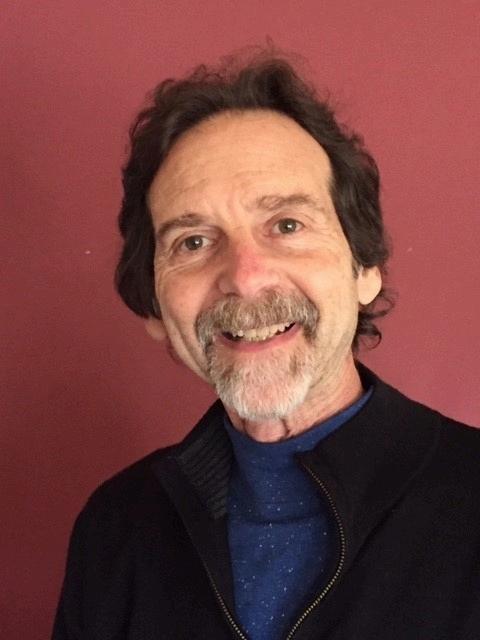




One way in which existential therapy has always stood out from other forms of therapy is by breaking the taboo on mortality and directly addressing finitude and death.

The Athenian philosophers, especially Socrates and Plato spoke clearly about death and how important it was to face our fears in relation to death. Stoics, especially the Roman branch, exemplified by Marcus Aurelius provided many concrete ways of dealing with the dread of death.
From Kierkegaard and Nietzsche onwards existential philosophers returned to this challenge, and Heidegger’s and Sartre’s work was groundbreaking in speaking so centrally about death and nothingness. When Becker wrote his book ‘the denial of death’ he addressed the deep-seated human tendency to fear death. Frankl’s work grew directly from his personal confrontation with death. Yalom’s ‘Existential Psychotherapy’ argued that death anxiety was at the root of most emotional problems.
Faced with new threats and darkness in the world it has become vital for existential therapists to give a clear lead in addressing life and death issues, especially in relation to wars, violence, the threat of climate emergency and the depletion of biodiversity. How can we work with atavistic fears, when they present themselves to us in new guises? How can we face these challenges and refuse to give in to the banality of evil that Hannah Arendt spoke of. Sinking into nihilism and wiping away the entire horizon, as Nietzsche put it so poetically in his Zarathustra is not the way to tame the dangers of the wild woods.
This talk will consider how existential therapists can help human beings around the world in being more brave and more aware in the way we address our contemporary predicaments.
Emmy van Deurzen is a philosopher and psychologist who has worked as an existential therapist since 1973.
She is an international speaker and has authored 20 books, which have been widely translated. She founded several training organizations and academic institutions, as well as the Society for Existential Analysis and its journal.
She was the driving force behind the First World Congress of Existential Therapy in 2015, which also led to the birth of the Federation for Existential Therapists in Europe.
She is visiting professor with Middlesex University and President of the worldwide Existential Movement.
ProfAlfriedLängle



In a phenomenological view aggression is not understood as a drive that needs to be abreacted and searches for objects. Instead, aggression is seen as a psychodynamic capacity to defend oneself if needed, i.e. when a situation is overdemanding oneself and cannot be resolved or regulated by decided acts to remove the cause. Aggression appears as a reaction to a stimulus which has the quality of bringing me/you into the danger of destruction of something existentially important.
According to the four dimensions of existence the aggressive reactions have different aims and are therefore different in structure. This will be exposed in this presentation which should help to understand and accept aggression better, as well as to deal with it accordingly to the specific existential theme involved and detectable by the type of aggression.
Prof Alfried Längle, M.D., Ph.D. (psychology) (Austria), born 1951 in Austria, founder (1983) and long-term president of the International Society for Logotherapy and Existential Analysis (Vienna), scholar and collaborator of Viktor Frankl. Professor at the Moscow’s HSE-university and Vienna’s Sigmund Freud University. 400 publications, two honorary doctorates, six honorary professor degrees, 2 decorations of the Republic of Austria.
DrJulianBaggini

Existential philosophy has from the outset prided itself on an unblinking view of reality at it is, without illusions. As such, it is unable to provide the kind of reassurance, hope and comfort that many feel they need in our turbulent times. It can nonetheless, give us resources to cope with adversity, affirm life and uphold values.


This talk will explore ways which we can use such resources without what Sartre called the false hope in belief that we will prevail and the end of the tunnel will come.
Dr Julian Baggini is the author, co-author or editor of over 20 books including How The World Thinks, The Ego Trick, How to Think Like a Philosopher and, most recently, How the World Eats: A Global Food Philosophy (all Granta). He was the founding editor of The Philosophers’ Magazine and has written for numerous newspapers and magazines, as well as for the think tanks The Institute of Public Policy Research, Demos and Counterpoint.
He has served as Academic Director of the Royal Institute of Philosophy, is a Visiting Research Fellow at the University of Leeds and has been a member of the Food Ethics Council since 2016. His website is JulianBaggini.com.

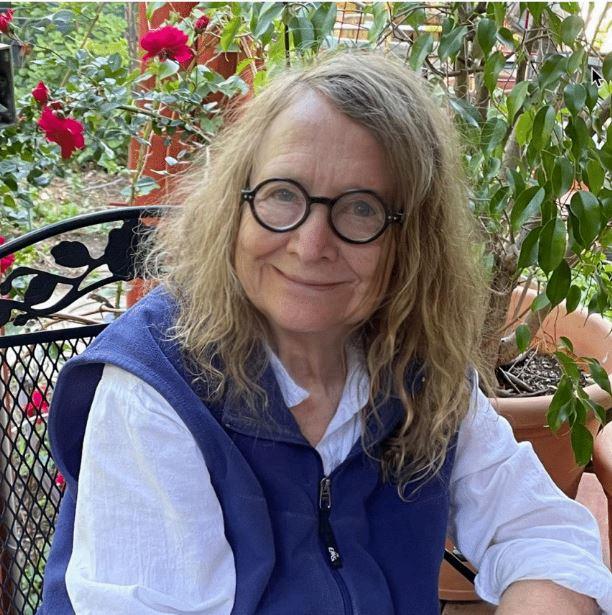

My title makes me uneasy. The physical and socio-political disturbances we are experiencing in the wake of climate change seem to portend at least the end of the world as we know it. What to do? I suggest we adopt a perspective I see as counter to Sartre’s “spirit of seriousness,” which is the perspective of mechanistic objectivist determinism. I call it the “spirit of play.” I do not mean to suggest that we fiddle while the world burns or adopt a Pollyanna attitude. But I do think we need to become more open to possibilities, including the possibility that all we can do is change our perspective.
As a therapist, I am aware that traumatized people have trouble playing. The intuitive response to disaster is retreat. But we can learn to play again, as my traumatized clients have taught me. If we do it right, perhaps the literal “wild woods” will endure––and so will we. And if not, we will have found ourselves playing at the literal end of the world––which is better than not playing at all.
Betty Cannon, PhD, is a licensed psychologist who has taught and practiced in Boulder, Colorado, for over 40 years. She is the founder of Applied Existential Psychotherapy, a modality she has been developing and teaching to mental health professionals at the Boulder Psychotherapy Institute(which she also founded) since 1989. She is a professor emerita of the Colorado School of Mines, a former senior adjunct professor at Naropa University, and an editorial board member of Existential Analysis and Sartre Studies International. She is the author of Sartre and Psychoanalysis and
numerous articles and chapters on existential philosophy and therapy. Her mentor was Sartre scholar and translator Hazel E. Barnes. She is Hazel’s literary executor, and her book on Sartre is dedicated to Hazel. Her current project is a book on AEP entitled In the Spirit of Play: Applied Existential Psychotherapy, whose central theme also inspired today’s lecture. AEP owes a debt not only to the philosophy of Sartre but also to Gestalt therapy, classical and contemporary psychoanalysis, body-oriented psychotherapy, and humanistic psychology––especially the person-centred therapy of Carl Rogers.
Betty’s concept of the spirit of play, conceived as an antidote to Sartre’s “spirit of seriousness,” is further inspired by D.W. Winnicott’s idea that psychotherapy is (or ought to be) a matter of “two people playing together.”



Politically tumultuous times call for rebellion against injustices. But how might we rebel in authentic ways? Simone de Beauvoir and Albert Camus are two philosophers who grappled with this question during the turbulence of mid-twentieth century Europe.
This session unpacks some of the philosophical ideas underpinning authentic rebellion from Beauvoir and Camus’s perspectives and explores some practical takeaways that can be gleaned from their work. Whereas Camus points to art, nonviolence, and moderation as strategies of authentic rebellion, Beauvoir focuses on raising awareness to tyrannical situations, oppressive mystifications, and complicity, including self-sabotage.
Skye C Cleary PhD MBA is a philosopher and author of How to Be Authentic: Simone de Beauvoir and the Quest for Fulfillment, Existentialism and the Authentic Life, Existentialism and Romantic Love, and co-editor of How to Live a Good Life.Skye teaches at Columbia University. She is also a Thinking Partner with Philosophy at Work and a DJ.
Her work has been published with The Wall Street Journal, The Paris Review, Aeon, Psyche, The Times Literary Supplement, TED-Ed, Los Angeles Review of Books, and others.
KirkJ.Schneider,PhD

Drawing on the 2024 film “Conclave” and related examples as background, I will describe life-enhancing anxiety and its implications for the bridge-building dialogue process I call the Experiential Democracy Dialogue. Life-Enhancing anxiety is the capacity to live with and make the best of the depth and mystery of existence; it's also a capacity to live more on the edge of wonder and discovery than terror and overwhelm; and third, it is a profoundly needed skill in this era of anxiety-driven polarization and certitude. In the balance of the talk I will describe a one-on-one format that aims at humanizing starkly contrasting cultural and political positions. I will elaborate the structure of this format, including the six phases that comprise it, my experience facilitating it, and research that backs it.


I will conclude my talk with a plea for integrating experiential democracy principles into peoples' day-to-day lives, thus expanding and deepening our encounters with differences, "otherness," and the radically unknown. Viewing of the film “Conclave” is highly recommended.
Kirk J. Schneider, Ph.D. (USA) is a leading spokesperson for existentialhumanistic and existential-integrative psychology, an adjunct faculty member at Saybrook University and Teachers College, Columbia University, and a cofounder and current president of the award-winning Existential-Humanistic Institute. Dr. Schneider is the author/co-author of 15 books, including his latest Life-Enhancing Anxiety: Key to a Sane World.



Using poetry as respite from the wild woods, this talk will share personal experiences, and concepts about unlocking the influence of colonisation, emotional plundering and mental deforestation.
In the wild woods of identity where divisions, and plundering are common features that influence being, there is ongoing threat of mental deforestation and annihilation of environmental roots and authenticity.
The existentialist philosopher Jean-Paul Satre introduced the concept of ‘the gaze’ 1943 suggesting that the act of gazing at another human being creates a subjective power difference, felt by the gazer, and by the gazed at. Consequently, the person being gazed at is perceived as an object, not as a human being, as in plundering of identity and roots.
Lacan (2009) referred to the symbolic order, influenced by the gaze, for example, the male gaze, from which gender hierarchies and divisions emanate. He suggested that once a child has learned the rules of society, it becomes more content. But what if these rules are damaging to the psyche and erode the food and fruit of our true nature and development.
Kaval (2023) offers examples of the ‘Racist Gaze’, this being an impingement on the psyche that can affect us every day and lower self-esteem. He refers to this phenomenon as an ‘agonising, often unspeakable, assault on the psyche’, I view this as the wild woods of negotiating environment and identity.
This damaging and confusing state can create an unstable identity experience for individuals. A confused identity can disturb responses to an experience of racism, thus deflecting an empathic, compassionate response and creating defences, such as rage and anger. In this case, support for healing the traumatic impact of racism may become lessened. I propose that, to Unlock a lifetime of colonisation, plundering and mental deforestation. ‘An appropriate gaze’ (addressed in my forthcoming book, 'A Black Empathic Approach to Psychotherapy- From Rage to Compassion) is necessary.
Dr Isha Mckenzie-Mavinga, has thirty-three years’ experience as a Transcultural Psychotherapist, Supervisor, Lecturer, Writer and Reiki Master. She is the author of ‘Black Issues in the Therapeutic Process’(2009) and ‘The Challenge of Racism in Therapeutic Practice’ (2016). She also co-authored an autobiography (1991)and contributed papers and poetry to several anthologies, including 'The Handbook of Transcultural Counselling and Psychotherapy' (2011: Ed Colin Lago), 'Making Research Matter' (2015: Ed Stephen Goss & Christine Stevens), 'Intercultural Therapy' (2019: Ed Baffour Ababio & Roland Littlewood), What is Normal' (2020: Ed Roz Carroll & Jane Ryan).'The International Handbook of Black Community Mental Health (2020:Ed Majors, Carberry & Ransaw).
She has a presentation on the Confer online Module 'Women on the Couch’ 2020 and has shared her work on various podcasts and conference videos including BME Voices Trauma Conference 2020. Ashridge Coaching Conference (2022) Isha initiated therapeutic services at the African Caribbean Mental Health Association in Brixton, and at Women’s Trust, working with women impacted by violence in relationships and she was a senior lecturer and student counsellor at London Metropolitan University. She has created Black Issues workshops, based on concepts created during her doctoral research. www.ishammcom.
Isha is a previous member of the BAATN leadership team and is now in the process of retiring and transitioning from professional practice to creative writing and Art. Her new book. A Black Empathic Approach to PsychotherapyFrom Rage to Compassion will be released in 2025.

AnnaLelyk&NataliiaGladka



We are Nataliia and Anna—colleagues and friends from Ukraine. We have had a different life experience: one of us left Ukraine when the war began as a refugee, while the other stayed at home.This experience has not created any problems either in everyday communication or professional sphere between us. More than that, it has offered us a great opportunity to phenomenologically examine different complex challenges and choices, we are facing at the moment.
Our experience has made us think it over, analyze every single detail and reflect on the idea that the phenomenon itself and the experience of the phenomenon are not the same thing.We want to share our personal reflections and thoughts on what a home itself means and what the feeling of home means for people in the context of the war. We’d like to discuss what it means to have “my place” in this world, what the safety is and what the meaning of feeling safe is, as well as the concept of freedom, loneliness, absurdity—both as phenomena and experiences of these phenomena.
Our presentation does not offer scientific discoveries but instead presents a deep exploration of personal experiences and the experiences of other people: our friends, relatives, colleagues.
Anna Lelyk Existential Psychotherapy & Counselling private practice. Founder of the cinema club from 2016 till now. In 2022 Anna founded an Existential School in Ukraine. ES is a space where everyone could learn something about existential perspective and approach. It’s aimed not only for psychologist or philosopher, but for anyone who wants to do his own life deeper and more meaningful. Author of books (published in Ukraine) Trustee of FETE
Nataliia Gladka. Education background:
1. Master's Diploma in "South Ukrainian National Pedagogical University named after K.D.Ushynsky.
2. International Institute of Existential Consultancy ( MIEK), trained existential therapist
3. I am a voting member of Fete
Existential therapist . Before the war in Ukraine, I had a private practice in Odesa, Ukraine. Since September 2022 I have been living in England and working in Rock Clinic ( Brighton) with Ukrainian refugees. I am also a volunteer at a Bramber Bakehouse charity organisation ( England), working with victims of domestic abuse, survivors of human trafficking, asylum seekers and refugees.


Existentialism came into China in the beginning of the 20th century. It was a time when a galaxy of Chinese reform-minded intellectuals launched New Culture Movement, which was likened to Renaissance by Hu Shi, the leader of this revolution. Existential philosophers and writers, such as Nietzsche, Kierkegaard, Dostoyevsky became inspiration to this group of Chinese visionaries. They began to reevaluate the Chinese tradition of culture by exposing how Chinese people have been indoctrinated by the feudalistic ideology and tyrannical ruling, which resulted in the Chinese mentality twisted into escapism. Lu Xun, the modern Chinese novelist and thinker, exposed this fact and advocated Zhi Mian as the antedote to mental escapism. The term Zhi Mian resonates deeply with existentialism in terms of facing the truth of reality, reflcting on suffering, and featuring individual.

Dr. Xuefu Wang is the founder and psychotherapist at Zhi Mian Institute for Psychotherapy, Nanjing. He has authored 13 books and numerous articles. In his extensive collaboration with existential psychologists across the world, especially in the US and UK, he has become a leading practitioner and promoter of existential psychology in China. He is an APA’s Charlotte and Karl Buhler Award recipient (2013)

ProfDigbyTantam
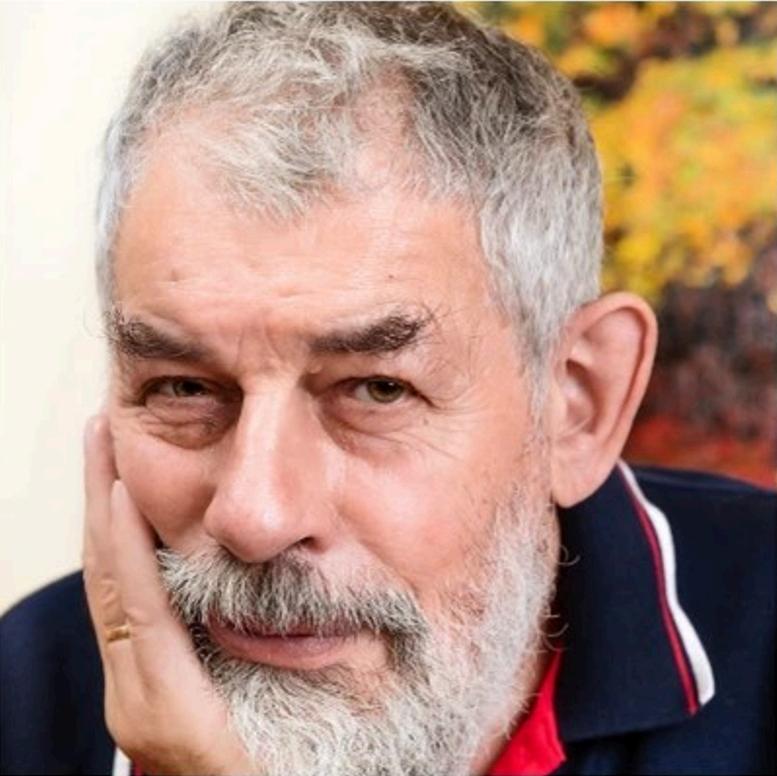

Kenneth Graeme was secretary of the Bank of England. He resigned from this post when only 49 and immediately published 'Wind the Willows' The title of this conference is taken from the title of one of the chapters in this book although it might be supposed that 'Into the Wild Wood' stands for 'Into the Wide World'. Grahame had a difficult life and this is reflected in the anthropomorphised characters in the book.
I focus in my talk on the Stoats and Weasels who are its villains, contributing much to the dangers of the Wild Wood. In the book, they are vanquished by larger members of the Mustelid family, 'Otter' and 'Badger', but in talk I consider what attitude we should take in the wide world to stoats and weasels with particular emphasis on what attitude we should take as psychotherapists.
Prof Digby Tantam is a psychotherapist, counsellor, psychologist, and psychiatrist. He worked in the NHS for over forty years, and as a University Professor for over 20. He is an Emeritus Professor at the University of Sheffield, and an Honorary Senior Visiting Professor at Middlesex University.
He is co-founder of the Existential Academy and the New School of Psychotherapy and Counselling.



The Climate Crisis has become increasingly present in our lives. Extreme weather events are now more common and the subject has become more prominent in the news. It has been described as an existential threat and of causing an existential crisis for people. It is therefore understandable that many people are experiencing a variety of emotions in relation to the climate crisis. This workshop aims to explore these differing emotional responses.
Existential philsophical ideas will be introduced and an existential perspective to understanding emotions will be presented. It is hoped that this will help participants understand their emotional responses in a deeper way, enabling them to find a different perspective to living in these turbulent times.
Dr. Claire Arnold-Baker, DCPsych (UK) is an existential counselling psychologist and psychotherapist, a lecturer, supervisor and researcher, as well as being the Principal and Course Leader of the DCPsych programme at NSPC. She has a small private practice where she specialises in working existentially with mothers and has a twin passion for maternal mental health and the natural world.
Claire has co-authored and edited a number of existential books as well as authoring chapters and articles. She is also a trustee of the Federation of Existential Therapy in Europe (FETE).
DrMarcBoaz


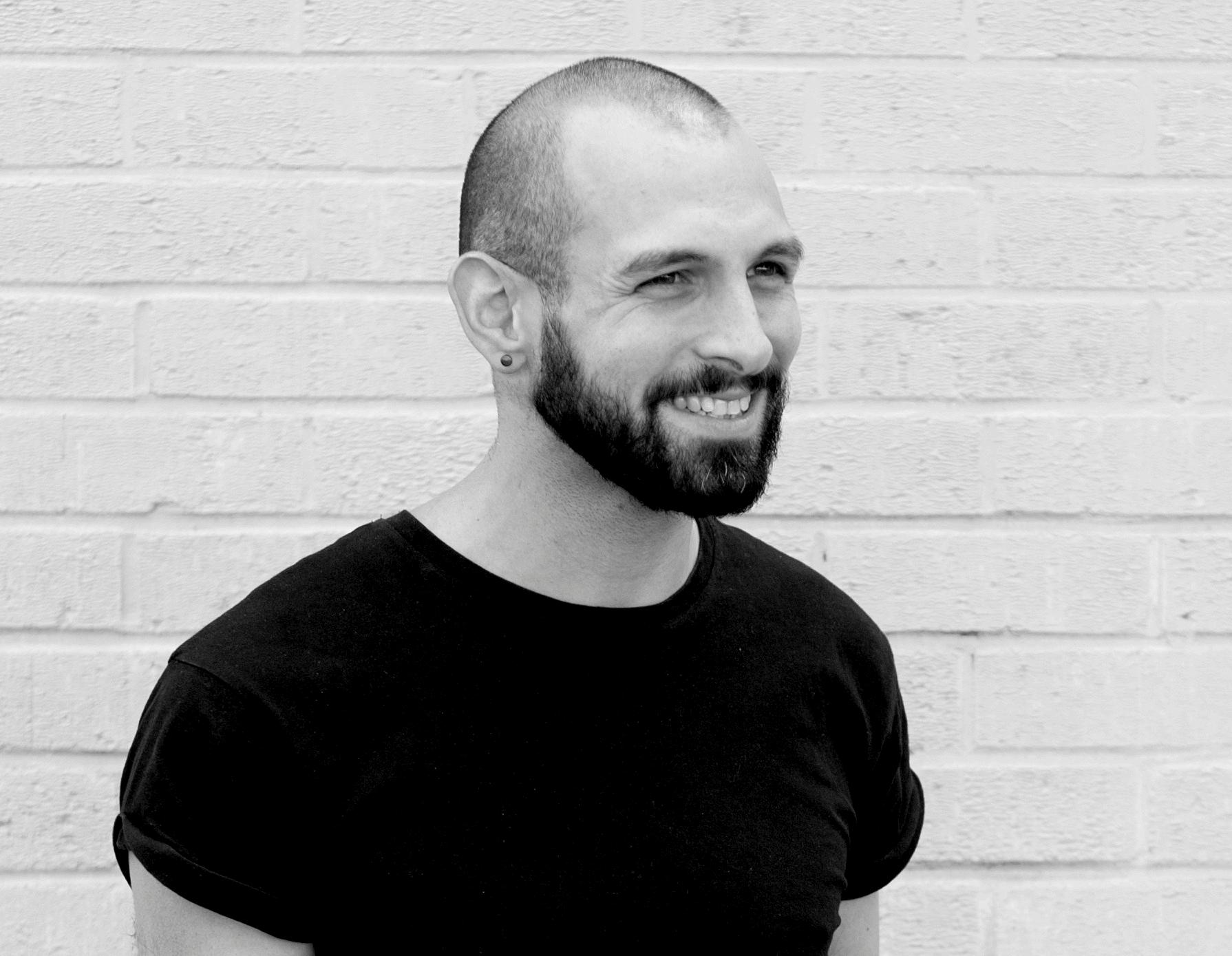
In order to understand the turbulence of our times, we must first turn to understand our own daimonics. Existential daimonics refers to our human capacity to bring about both great destruction/devastation and construction/creation in our own lives, and the world around us.
There is no us and them when it comes to daimonic destructiveness and constructiveness; what divides us is ethical and reflexive. Extending and reformulating the work of Rollo May, and drawing on the reflexions of James Baldwin, I will suggest that understanding and holding the existential tensions that arise from dynamic relationship within our personal and collective daimonics can cultivate the ground for hope, understanding and healing.
Marc Boaz is an existential psychotherapist, a visiting Professor of Mental Health and Psychotherapy at the University of Northampton, UK, and teaches Critical Psychopathology at the New School of Psychotherapy and Counselling (NSPC), UK. He is an author of works on interpersonal trauma, childhood adversity and neurodivergence.
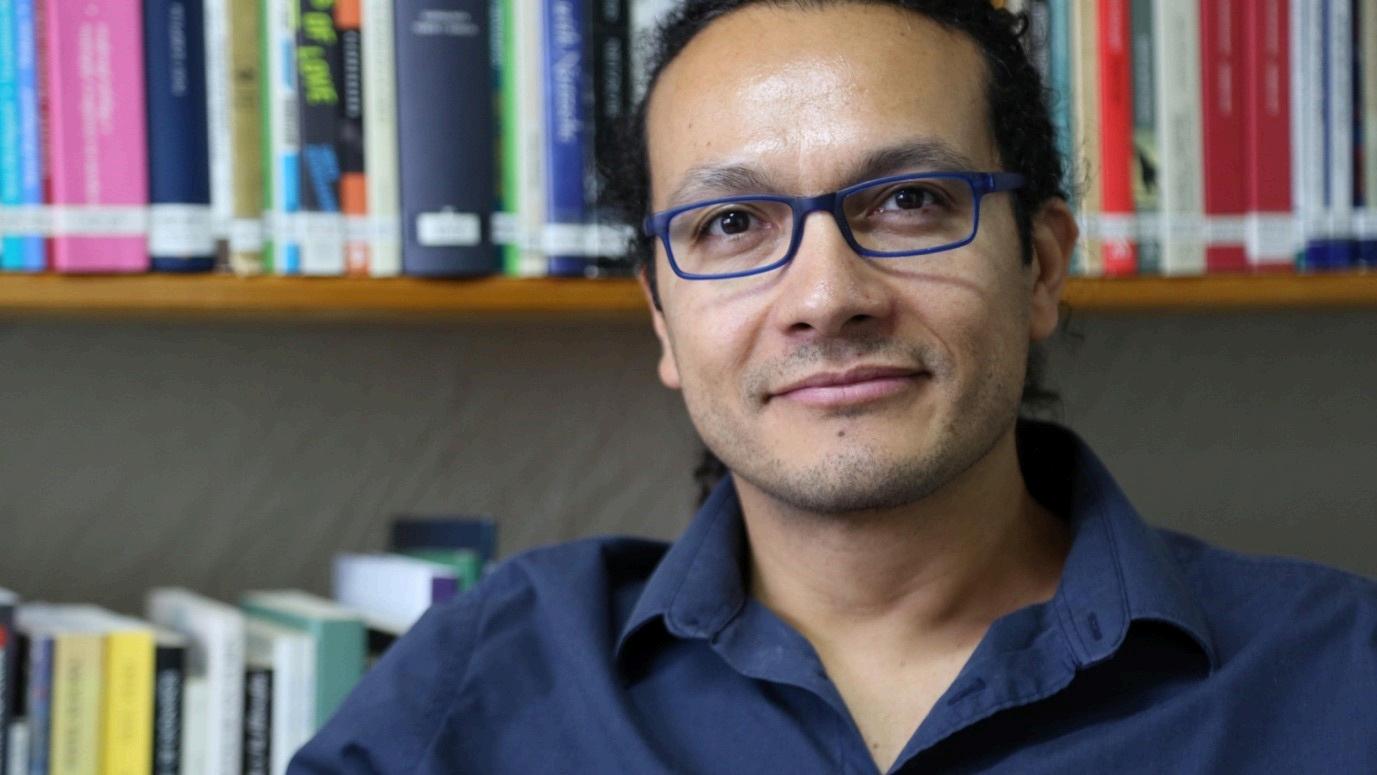


The topic of psychedelics is increasingly present in social, scientific, and therapeutic conversations. More and more therapists hear from people who have had, or are planning to attend, an experience with psychedelics, whether recreationally, ceremonially, therapeutic or simply by curiosity. References to these substances appear more and more in journals and various publications, including the field of existential therapy. What we can observe as well, is that most of our colleagues feel confused about how to approach these kinds of experiences. After all, many of us were trained under the idea that drugs (regardless of what type of drugs they are referring to) are the devil himself.
There are several perspectives where Psychedelic-Assisted Therapy and phenomenological Existential Therapy share fundamental aspects and can learn from each other. And there are also certain challenges that each perspective places on the other. During this presentation, I would like to share some reflections about this emergent field.
Yaqui Martinez-Robles. PhD., (Mexico) Existential-phenomenological therapist. Trainings in Gestalt, Group, Narrative, and Music therapy. Certifications in Holotropic breathwork, and Psychedelic-Assisted Therapy. Founder of the Circle of Studies in Existential Therapy, in Mexico and Colombia, where he trains existential therapists since 2002. Honorary president of the Latin American Association for Existential Psychotherapy.

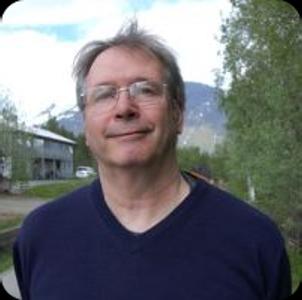

As long as our society is dominated by the ideas of Enlightenment, it will inevitably be inherently racist and antisemitic. As long as western philosophy rules our way of thinking - from the ideas of Plato until and including Heidegger's ontology - we will be committing violence unto the other - and ourselves.
Emmanuel Levinas suggest that the only way to exist, is to submit to the Other. What does he mean by that?
Dr. Peter Donders (Norway and Netherlands) earned his PhD-degree with a study on the way cancer patients deal with arising existential questions. Since 2006, he has worked as therapist in the team for Existential Therapy at the Viken senter in Norway.
He is the current Chair of the Federation for Existential Therapy in Europe.



My favorite fairy tale as a child is a prime example of existential courage. This presentation will explore the possible roots of existential courage and will power so vital for facing life's challenges. It is based on an existential-developmental understanding of human existence.
Evgenia Georganda, Psy.D., ECP, (Greece) is chief administrator, cofounder, trainer and supervisor of “gignesthai”, the Hellenic Association for Existential Psychology. In 2018 she was nominated for the Charlotte and Karl Buhler Award of APA for her contribution in promoting existential psychotherapy in Greece.
Has served as secretary to the National Organization of Psychotherapists of Greece, membership secretary and member of the Board of Trustees of the Federation for Existential Therapy in Europe.

This will be a phenomenological exploration of embodiment of nature within us as well as embodiment of us within nature. Already Merleau-Ponty and Heidegger were hinting at the experiential embodied intertwining between ourselves, others and the world.


When we not only understand and realise but also feel and embody the intimate connection with nature, water, Earth, breath and fire we start to connect and care about nature from a place of integrity, vulnerability and power. This can be a part of our multidimensional embodiment that has a rippling effect on all life, on how we interact with ourselves, others and nature.
This is a workshop of tuning into the consciousness of water, the waters of the Earth and the waters of our bodies. I will lead an embodied exploration of the intelligence of water and how reconnecting with it can open us up to the flow of our emotions, sensations, passions, dreams and bring more clarity about how we can be a part of the greater flow of the changing times.
Dr Alja Lah, MSc, DcPsych Alja has a deep love of waters and the Earth ever since she can remember. She is currently writing a book about intimacy with the waters of our bodies and the body of Earth. is a doctor of counselling psychology and psychotherapy, supervisor, lecturer and writer. Her specialty is in multidimensional embodiment, phenomenological existential psychotherapy, eco psychotherapy, deep relational psychotherapy, psychedelic integration.
Her passion is providing space for individuals to become more in touch with themselves, their emotions, their bodies and the body of Earth and with that to learn how to flow through life with openness, presence and awareness.
She likes to take people out of the counselling rooms into the forests, parks and waters with that giving them a possibility to reconnect to the organic life and allow nature to be the holding. www.aljalah.com


Existential shattering refers to the “Existential shattering is the sudden and unexpected dismantling, or shattering, of one’s self-conception and worldview as a consequence of an event or process that the individual has experienced” (Hoffman & Vallejos, p. 847). An existential shattering can emerge suddenly from a single event or result from a gradual process, such as a cumulation of events or questioning over time. Shatterings often occur in connection with a potentially traumatic event. The presence of an existential shattering with a traumatic event may help distinguish it from other types of trauma response. When a shattering is present, it indicates that work with meaning, worldview, and/or personal narratives may be an important aspect of the therapeutic treatment process. This presentation will give a brief introduction to the concept of existential shattering as well as considerations for psychotherapy.
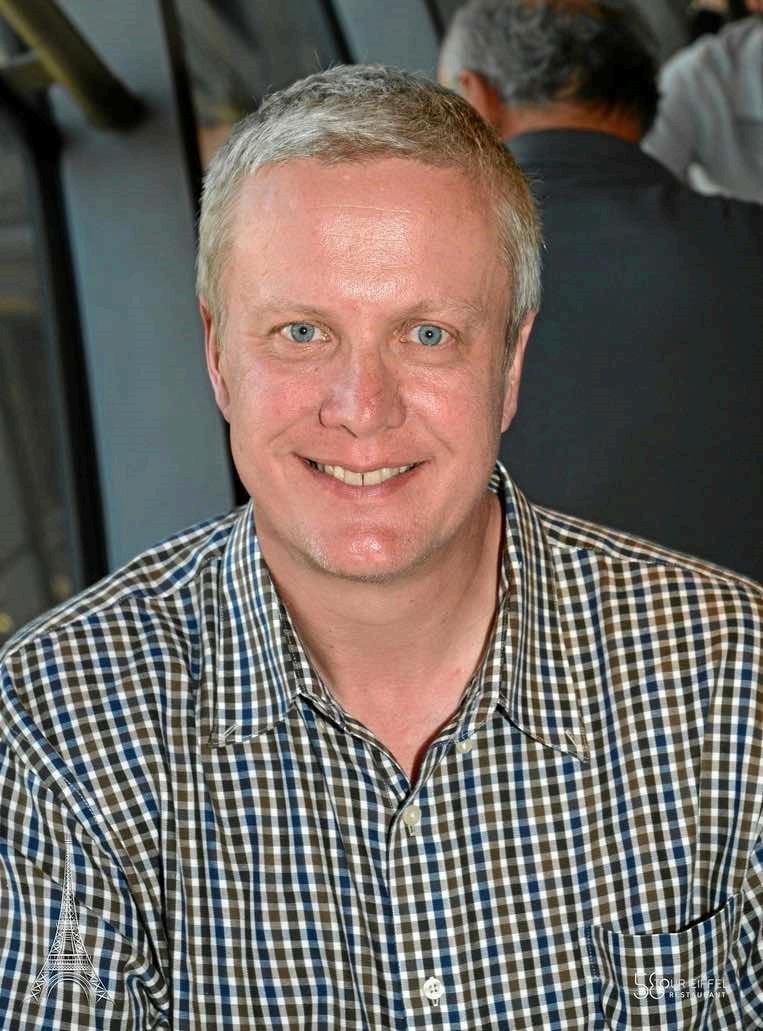
Louis Hoffman, PhD, (USA) is the executive director of the Rocky Mountain Humanistic Counselling and Psychological Association and a psychologist in private practice. He has been recognized as a fellow of the American Psychological Association and 6 of its divisions and is a recipient of the Rollo May Award of the Society for Humanistic Psychology.
DrErikCraig
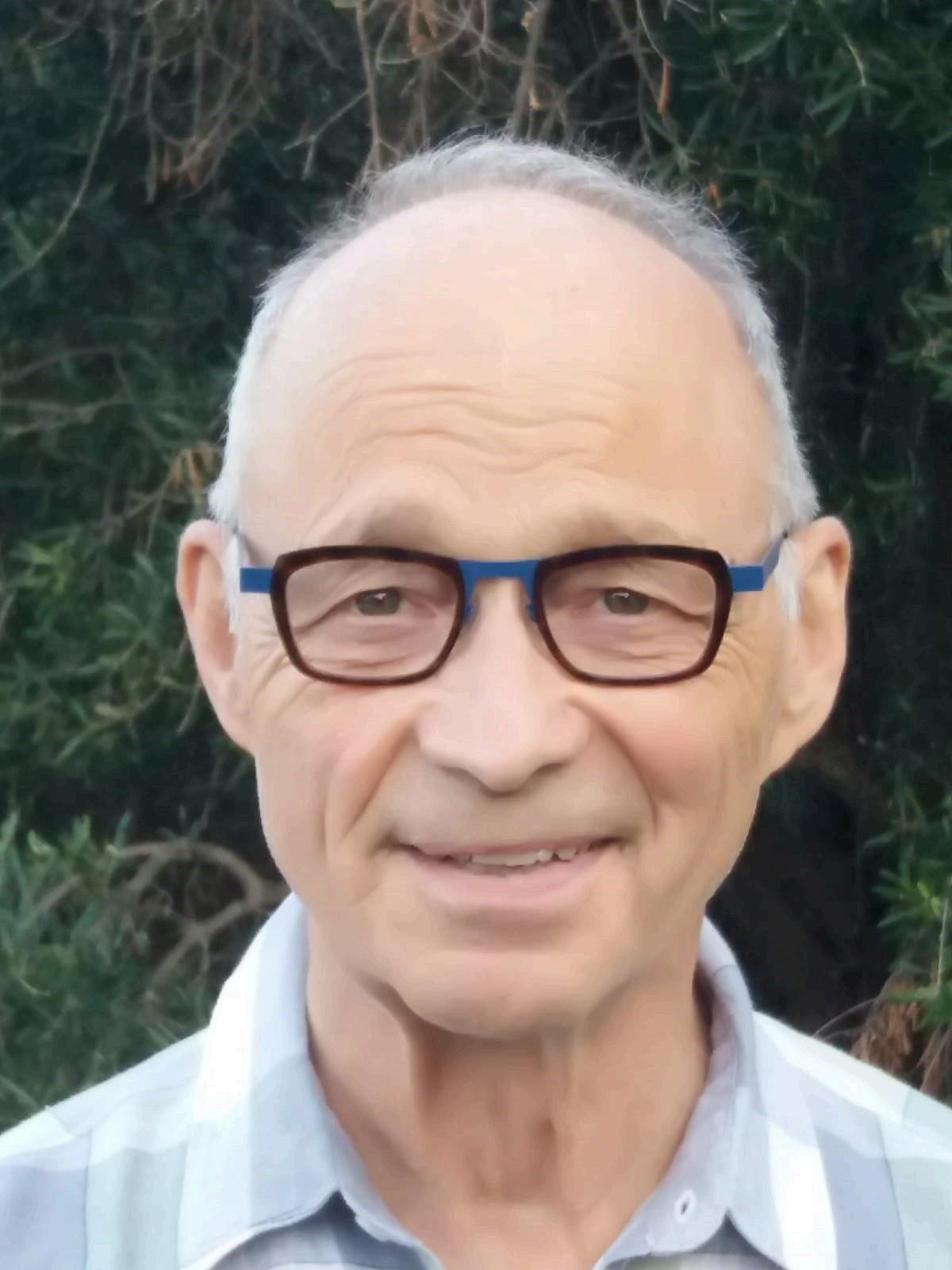


Of all our possible moods and emotions, those of attraction, affection, affiliation, or love on the one hand, and aversion, animosity, alienation, or aggression, on the other, seem to possess a uniquely preeminent capacity to seize hold of our existence. Whatever you might think of Freud’s dualistic theory of the drives, “Eros and Thanatos,” any familiarity with the natural world, study of art, literature, and the history of civilization, attention to the daily news, or simply attentive observation of our everyday lives offers copious evidence of our ready inclination toward these two particular relational comportments. Furthermore, contemporary affective neuroscience has now firmly established that these two fundamental tendencies are hardwired into our very own biological neurocircuitry. Given these circumstances and contingencies, where does our capacity for freedom lie? How far does it extend within the context of our inescapably finite human existence?
This workshop is designed as an opportunity to explore and share our personal experience, understanding, and response to these issues and challenges in our lives, thrown as we are into these uncertain and unpredictable woods of our times.
Dr. Erik Craig (USA), psychologist, writer, and lecturer, has received APA’s Rollo May Award and recognition from the Journal of Phenomenological Psychology as one of 11 independent psychologists contributing to the emergence of phenomenological psychology in America through his “steady stream of invaluable research.” He collaborated extensively with the Daseinsanalyst, Medard Boss, and the Korean Taopsychotherapist, Rhee Dongshick, and is committed to developing an existential approach to depth psychology and psychotherapy.
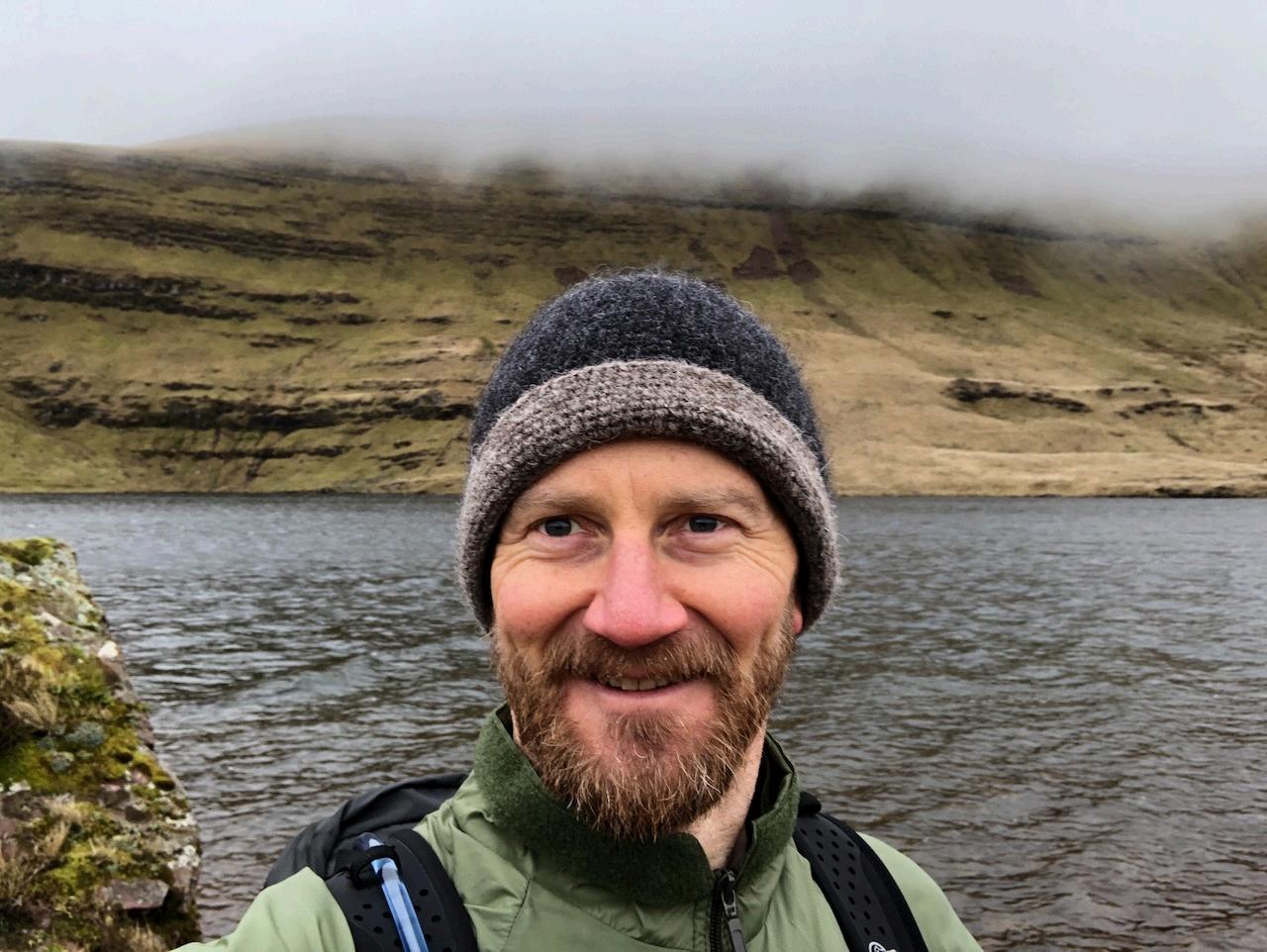
DrChrisCleave&DrStellaDuffy


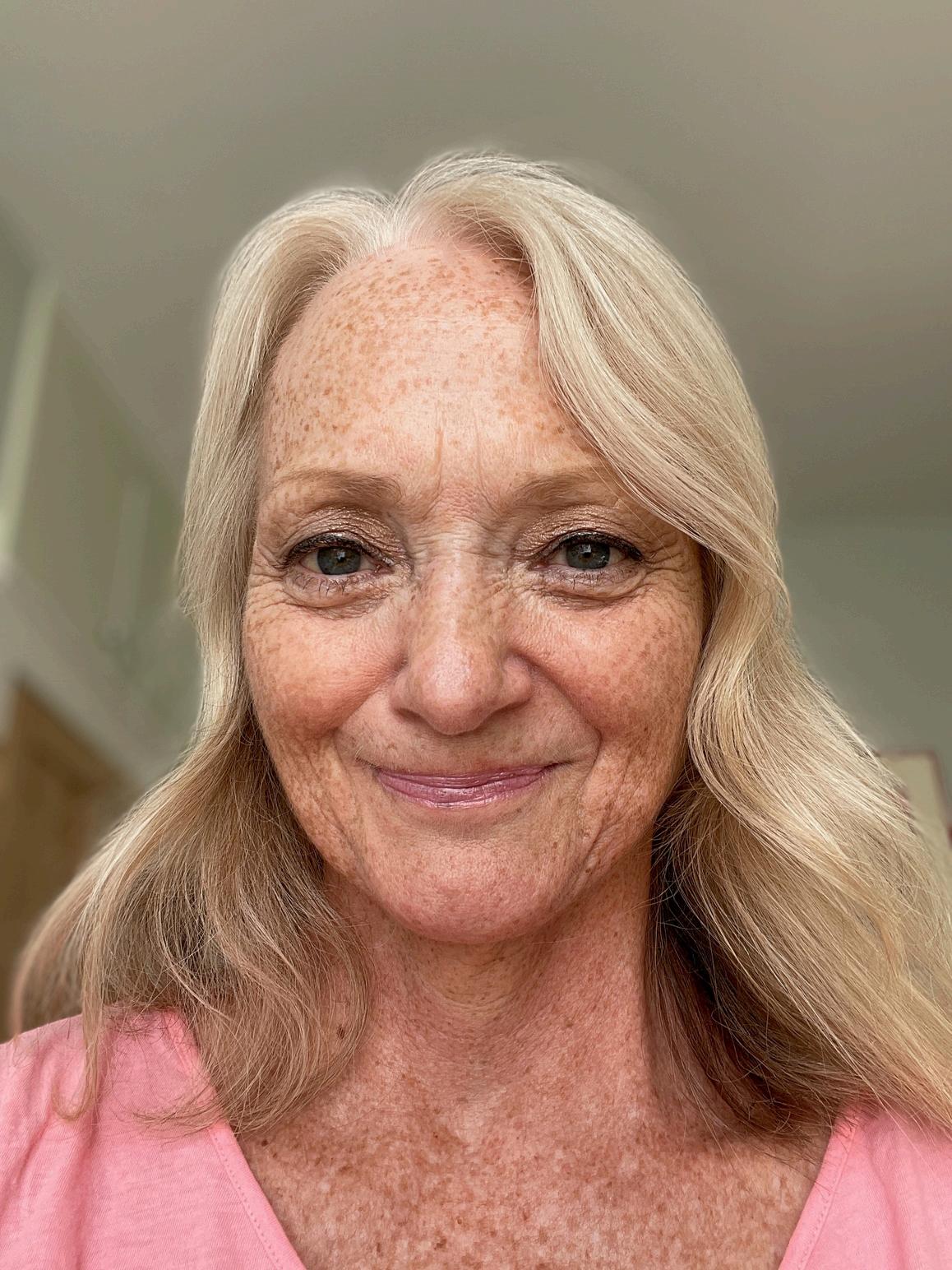
As the end game of late stage capitalism brings us increasing poverty and war, the global rise of the far right, the catastrophes of climate change and mass extinction, and AI’s appropriation of everything we have ever created, it is easy to carry a sense of doom, with emotional exhaustion contributing to existential despair. And yet these dark times are also our call to courage, solidarity and a particular kind of existential skill. We know from the lives of First Nation peoples in every continent, that while the ontological apocalypse of colonialisation steals and brutalises bodies and land, spirit can still be held in secret places, codes, hidden songs, and ways of being that might appear on the surface to conform, but in reality hold space for possibility.
From the caves at Lascaux to te reo Māori – rising after decades as a banned indigenous language – we suggest that each of us might have our own subterranean, immaterial world in which we can hold space for the unknown, the unknowable, the uncorruptible, and the unappropriable.In this workshop you will assemble a quiverful of secrets: your own hiding place for human being.We ask: what are you keeping safe? Where are you keeping it? Who is holding space for it? Who are we holding this space for? Who or what are we keeping it safe from? Whose other worlds are you keeping safe?
You bring pens, paper, colouring pencils, crayons, magic markers, precious things, secrets words and worlds – whatever appeals to you today – we’ll bring useful thinking from Lévinas, Weil, Kierkegaard, and Ortega, and let’s see what seeds we might grow individually and collectively. Vive la résistance!
Dr Stella Duffy is an existential psychotherapist in private practice and has facilitated several workshops with Chris Cleave. An award-winning writer of 17 novels, over 70 short stories and 15 plays, she is also a theatremaker and workshop facilitator, with a particular interest in the creative possibilities of existential psychotherapy. Her doctoral research was in the embodied experience of postmenopause and she is currently writing a non-academic version of her thesis for a mass market publication with Virago.
Dr Chris Cleave is a psychologist, existential therapist, and writer. A New York Times #1 bestselling author, his novels about trauma and recovery are published in 35 languages. His research and current writing focus on people transforming their lives into therapeutic experiences, outside the therapy room. Chris obtained his doctorate at the New School of Psychotherapy & Counselling. He keeps an existential practice in London

ProfSimonduPlock
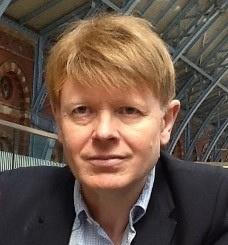

Attitudes to ‘the Wild’ have evolved to the extent that the malignant ‘Wild Wood’ found in literature in which we can be lost has been superseded by more benign notions such as ‘Forest Bathing’ in which we find ourselves.
How has our attitude to the wild changed; what might the therapeutic gains of walking in untamed nature be now?
Professor Simon du Plock (UK) is Senior Research Fellow at the Metanoia Institute, London. He has authored nearly one hundred journal papers and book chapters on existential therapy, and he has co-edited Existential Analysis, the Journal of the British Society for Existential Analysis, since 1993. He was an editor of the 2019 Wiley World Handbook of Existential Therapy.
He has lectured and trained internationally, and in 2006 he was made an Honorary Member of the East European Association for Existential Therapy in recognition of his contribution to cooperation between West and East Europe in the development of existential psychotherapy.
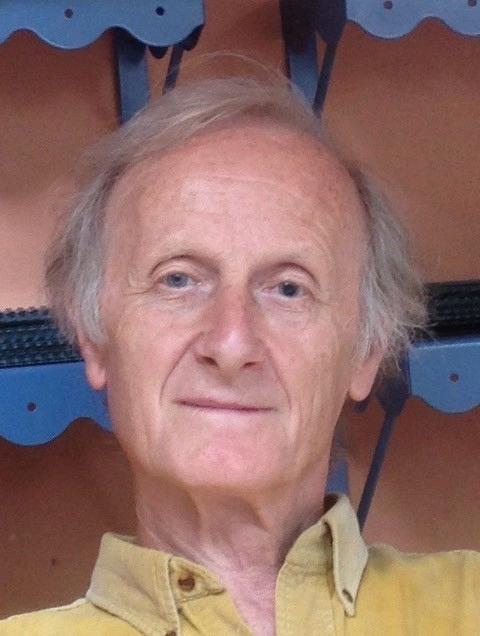


What is our relationship with the material world? Can we meet the challenges it presents us with?
This presentation will examine the existential meaning of how do we grow to understand our place in the material world and how we can engage with it to enrich how we are, how we can be and how we can effect change.
Dr Martin Adams (UK) is a psychotherapist, writer and sculptor. He is coeditor of the journal Existential Analysis. As well having written on a wide variety of subjects he is the author of A Concise Introduction to Existential Counselling (2013), An Existential Approach to Human Development (2019), and with E. van Deurzen, Skills in Existential Counselling & Psychotherapy (2016).

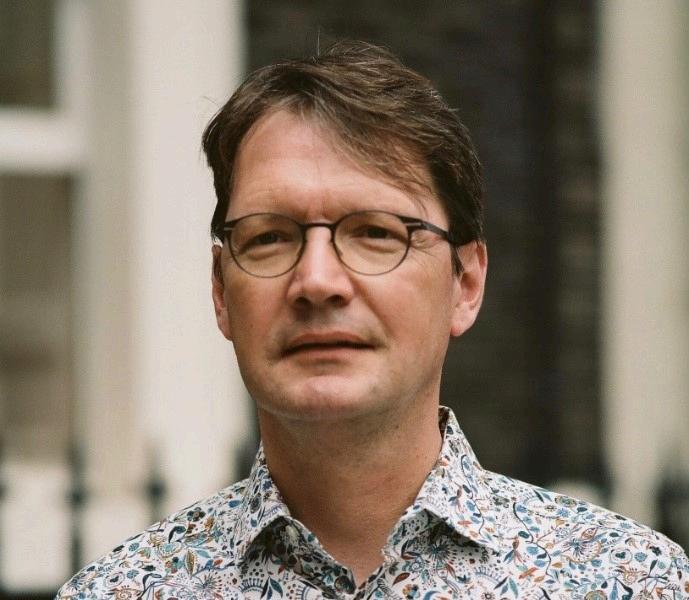

The therapeutic benefit of gardens and gardening has become well established in recent years. I will argue that gardening is also an opportunity to ‘dwell’. As Heidegger reminds us “Dwelling, however, is the basic character of Being”.
In this presentation I will explore dwelling and its relevance to psychotherapy through the lens of gardening.
Dr. Rupert King is a UKCP registered existential psychotherapist and supervisor in private practice. He studied at Regents University and is a graduate of the ADEP program. He was first recipient of the Hans Cohn prize. Over the years he has taught phenomenology and existential philosophy on several postgraduate diploma courses. He completed his doctoral studies in 2017, and his research interests include hermeneutic phenomenology, the later works of Martin Heidegger, active imagination and Jungian psychology. He designed and gardens a tropical water garden in Chiswick, West London.
His garden was inspired by early Persian Paradise Gardens and has a lush, exotic, sculptural planting scheme. The garden is open once a year as part of the National Garden Scheme. It has been featured on BBC’s Gardeners’ World program and appeared in numerous gardening magazines.
Tyler Gamlen, Jacqueline Otten, & Nick Ant

Digby Tantam
Panelists:
Tyler W. Gamlen, MA (committee chair, USA)
Jacqueline Otten (student representative, Germany)
Nick Furnica (student representative (Austria)
This panel discussion builds upon the foundational themes of “The Existential Movement “Into the Wild Woods: Existential Responses to Turbulent Times” by transitioning it from a single presentation into an interactive student-led dialogue. The session aims to foster critical discourse and expand student engagement with existential thought in contemporary society. By including a diverse group of student panelists, this discussion will explore various themes, emphasizing existential therapy, social change, environmental concerns, and more.
This initiative seeks to amplify student voices within the Existential Movement, create a space for emerging scholars and practitioners to share their perspectives, and encourage interdisciplinary collaboration across psychology, philosophy, and related fields. By facilitating this transition, we aim to cultivate a more interactive, inclusive, and forward-thinking approach to existential inquiry. Attendees can expect a thought-provoking discussion that highlights the role of existential thought in addressing modern-day challenges and encourages continued student involvement in the movement.
Prof Digby Tantam is a psychotherapist, counsellor, psychologist, and psychiatrist. He worked in the NHS for over forty years, and as a University Professor for over 20. He is an Emeritus Professor at the University of Sheffield, and an Honorary Senior Visiting Professor at Middlesex University
He is co-founder of the Existential Academy and the New School of Psychotherapy and Counselling

After studying art and design in Holland, my career began in the 80ies as a trend forecaster in Paris. I expanded my activities at the cutting edge of society, media and markets in the following decades, especially in Hamburg / Germany and later in Zurich / Switzerland.
I came to kansei engineering in Japan in the 90s and wrote my PhD on lifestyles and social behavior. The Kansei philosophy turned back to the roots of Japanese philosophical and cultural work, to rediscover the essence of the human
spirit, and to use it as inspirational means for the interaction between the real and digital world. With another focus on creative processes, I wrote the Resign Thinking workbook in 2019. www.resign-thinking.com, the English translation with the title “break out” was published in 2022
Coming from the questions what directions our being in the world will take tomorrow and which paths people will choose in the pandemic, I looked for a human centered approach in my teaching and I wanted to develop further my expertise in psychology. The first step was to gather basic knowledge in my 2 years studies from 2020 becoming a Registered German naturopath for Psychotherapy in Hamburg 2023. I connected Resign Thinking and counselling, and I started working with the existential analysis from 2020 and I started my studies at the Hamburg Academy in 2021. Parallel to this, I started a Master of Advanced studies in existential counselling at the University of Leuven, Belgium in 2024
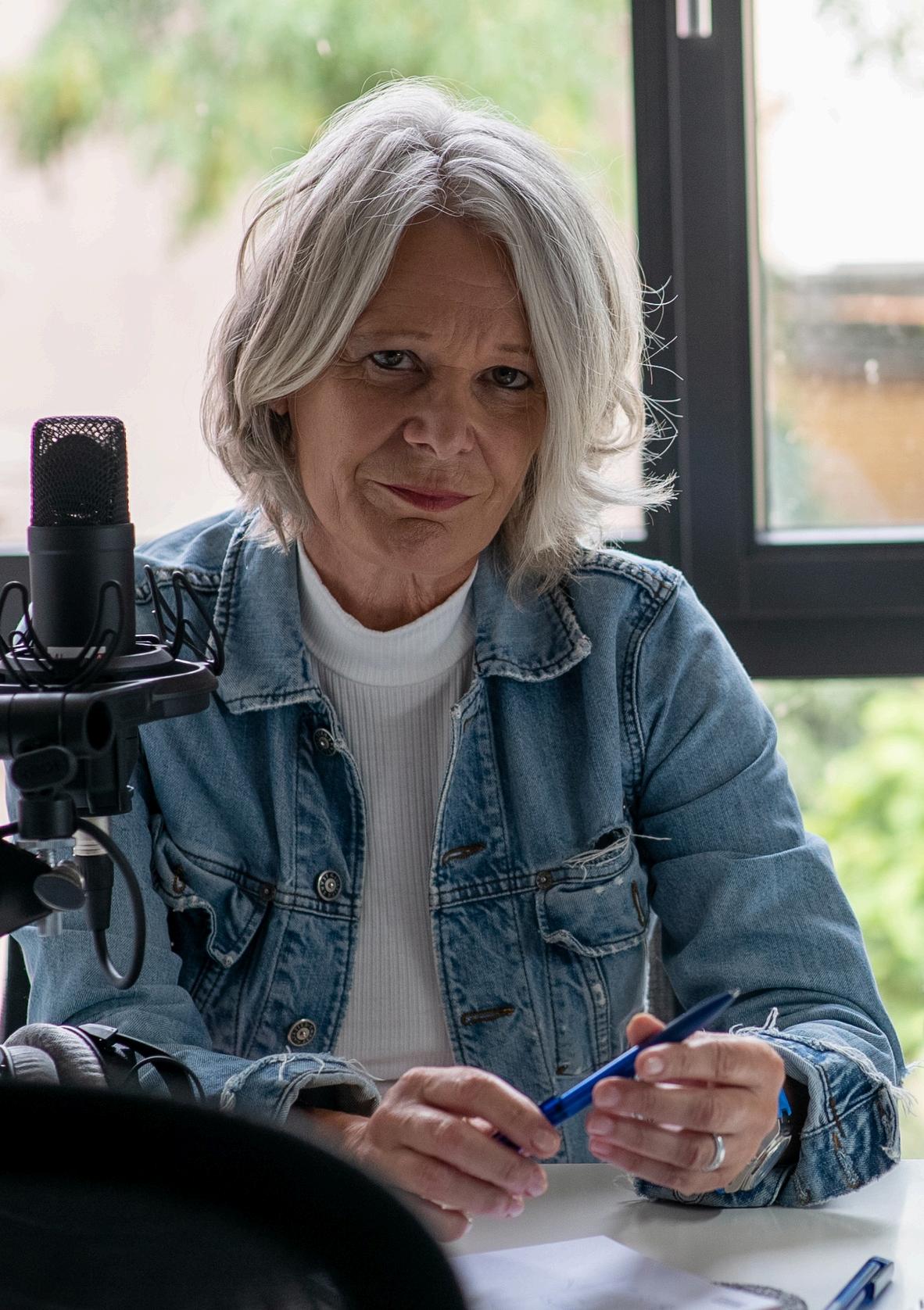
Tyler W Gamlen, MA is a PhD student in Clinical Psychology at Saybrook University with a focus on existential-humanistic and depth psychology. He serves as the Director of Operations or the Corps of Depth Healers, where he collaborates with Dr Kirk Schneider to address social crises through depth-oriented approaches.
Tyler is also the co-host of the Depth Dialogues podcast, engaging thought leaders in conversations on existential and humanistic psychology. In addition to his work with the Corps of Depth Healers, Tyler is deeply involved in leadership and
advocacy within the field. He serves as the Student Representative for APA Division 32 (Society for Humanistic Psychology) and as the Chair of the Student Committee for the Existential Movement, where he works to expand existential psychology’s reach through mentorship, interdisciplinary collaboration, and public engagement. His research and professional interests include existential-integrative therapy, depth psychology, and the intersection of existential thought with Eastern philosophy.

Tyler is also engaged in several scholarly projects, including a forthcoming collected works volume of Arthur Bohart’s contributions to psychotherapy. Committed to bridging theory and practice, he is passionate about fostering spaces for existential inquiry and cultivating dialogues that reconnect individuals to meaning, authenticity, and humanity in an increasingly fragmented world.
Hi my name is Nick, and I am a psychiatric resident in my 4th year of training. I started my training in psychiatry in Romania at the university psychiatry clinic in Timisoara, and I am currently continuing my psychiatry training in Austria at the departmental hospital in Hollabrunn
I started my training in existential analytic psychotherapy in Vienna at GLE Austria, where I am currently in the clinical part of the training Simultaneously, with this training, I started the same training for the second time at the Romanian Society of Existential Analysis and Logotherapy in Romania.
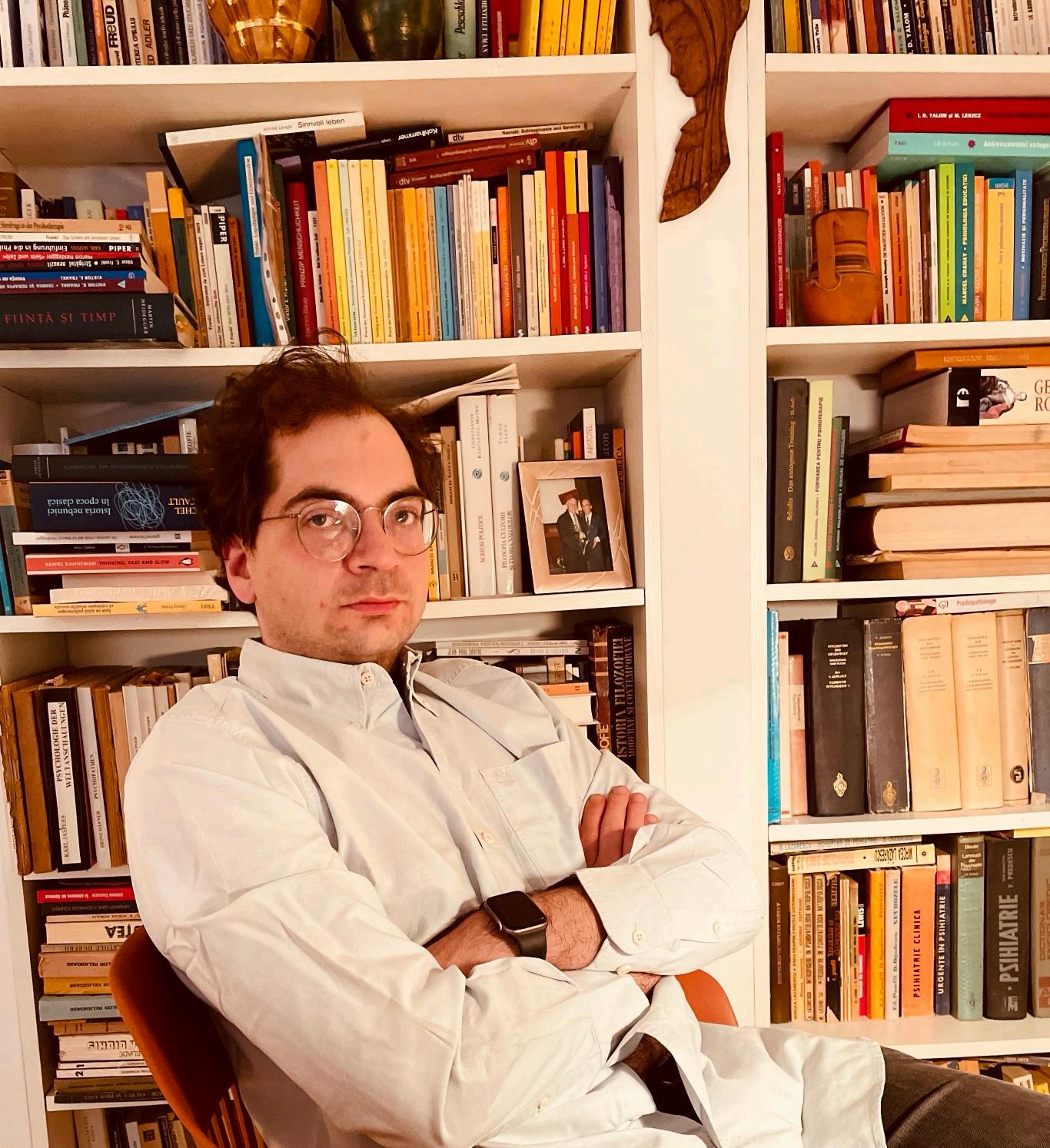
From the point of view of clinical interests is anxiety the theme that I have also presented at the national congress of psychiatry in Romania. Another topic of interest for me is psychosis and its phenomenological analysis.








